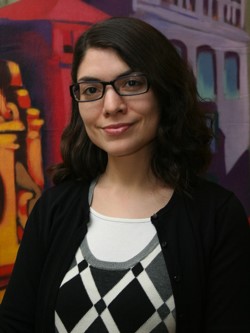Those early seeds of consciousness shaped my purpose and practice in philanthropy today. I am fortunate to serve at the Hyams Foundation, a private independent foundation based in Boston whose mission is to increase economic, racial, and social justice and power within low-income communities. At Hyams, we know that we cannot shift the structural factors that perpetuate racial and economic injustice without doing the long work of building the movement and the power necessary to transform those paradigms. I have had the honor of learning from and partnering with incredible leaders in the immigrant rights movement, leaders who have moved in concert with worker justice groups, recognizing their shared struggle to combat worker abuse and exploitation. I have also had the opportunity to work with immigrant rights partners who join arm in arm with leaders of the prison abolition movement, recognizing the deep ties between the narratives of criminalization and dehumanization that have fed both the carceral state and the deportation apparatus.
Through that shared commitment to collective power building, our local partner, the Brazilian Worker Center, forged a powerful coalition with labor, faith-based groups, business leaders, and others to pass and defend the Work and Family Mobility Act this year. That bill, importantly, gives all qualified state residents the right to apply for a standard Massachusetts driver's license, regardless of immigration status.
Rather than implement comprehensive and reparative policies that address our nation’s harmful history, policymakers continue to pass short term legislative solutions to spare themselves any political cost, leaving immigrants and refugees in the lurch. We in philanthropy can also find ourselves caught up in the news of the day, offering short-term dollars for short-term solutions in response to immediate crises. While immigrant communities do need us to heed their calls for support in those times of crisis, we must also join them in taking up the long-term work.
For me that means investing in base building groups, coalition anchors, and the movement infrastructure needed to change policy and material conditions for our immigrant and refugee communities. It means continuing to learn from and flank our movement leaders, activating our resources, power, and platforms in service of their work. It means having the courage to invite a bigger conversation about our nation’s history and the present-day manifestations of colonialism and racial capitalism. It is through tending to those deep roots and committing to doing that long work together that we can manifest our collective right to dignity, self-determination, and belonging.
I am so honored to join the board of GCIR, an organization I have long admired and that shares my commitment to following the lead of the immigrant and refugee movements and doing the long work. In the face of challenging headwinds, I remain inspired by immigrant leaders and the ways in which GCIR and our funder colleagues are showing up in active solidarity. This year, I look forward to continuing to stretch in my own practice and know that I am in great company.
